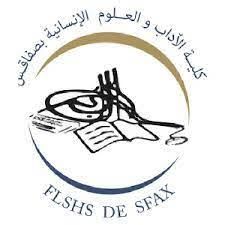
The Department of English, The Laboratory of Approaches to Discourse, The Laboratory of Language and Automatic Treatment, and The Doctoral School at the Faculty of Letters and Humanities of Sfax – Tunisia jointly organize:
International Conference
Who Writes? Authorship and Authority in Transformative Times
5-6-7 February 2026
Venue: FLSHS
Between the moment of a work’s inception and the final act of its dissemination and reception, the author faces a variety of choices and considerations, where each choice etches the evolving contours of authorship. Thus, such a concept, long central to the critics’ concerns, remains as lively as it has ever been, namely, in periods of social, cultural, and technological changes, where it demands renewed scrutiny.
Traditionally, the figure of the author has carried both symbolic and institutional authority: as the source of meaning and truth, whether in literary, historical or scientific discourses. By the late 19th century, philosophical reconceptualizations of authority in relation to the ‘self’ (Freud), religion (Nietzsche), and ideology (Marx), found their full articulation in later theories about discourse (Foucault), literature (Barthes, Burke, Kristeva), and historiography (Benjamin, White).
Further still, in transformative times -marked by globalization, digital innovation, political upheaval, identity discourses and emergent posthuman voices- this authority has become unstable, redistributed, or utterly rejected. Moreover, authorship is no longer a solitary act but often a collaborative, contested, or digitally mediated process.
What does it mean, then, to write, speak, or claim authorship in a time when textual production is increasingly collective, transnational, intermedial, and even artificial? How do we define authorship, and what criteria determine who or what can be considered an author? Is it possible to co-author a work with an AI tool like ChatGPT? Who holds the rights to intellectual property when the creative process involves artificial intelligence? In what ways have contemporary writings engaged with, or perhaps overlooked, these shifting dynamics? How might these debates mirror the pressures and uncertainties currently shaping the humanities?
This conference invites papers that examine the evolving dynamics of authorship and authority within literary, cultural, academic, and linguistic discourses and studies. We are particularly interested in perspectives that consider how enunciating voices enact, experience, or resist authority, how textuality and genre conventions reconceptualize and de/construct authority, and how authorship adheres to or evades institutional and ideological demands.
Potential topics may include, but are not limited to:
- Autobiography
- Reliability
- Performance
- Identity
- Voice
- Artificial Intelligence
- Anonymity
- Academic Writing
- Claims
- Co-authorship
- Collaborative Writing
- Group Authorship
- Writing Circles
- Canonicity
- Publishers, Critics, and Readers and the Construction of Authorship
- Translation, Adaptation, or Re-Mediation
- Authorship and the Ethical Turn
- Censorship
- Forgery
- Intersectionality
- Resistance
- Tradition and Revolution
- Litigation
—
Conference Coordinators:
Radhia Besbes Krid and Sabiha Choura
—
Submission Guidelines:
Please submit a 300 word abstract and 5 keywords to: authorshiplad@gmail.com
Please include: name, institutional affiliation, short bio (max 100 words),
and indication if you prefer to present online or in person.
Deadline for Abstracts submission: 30 November 2025
Notification of acceptance: 31 December 2025.